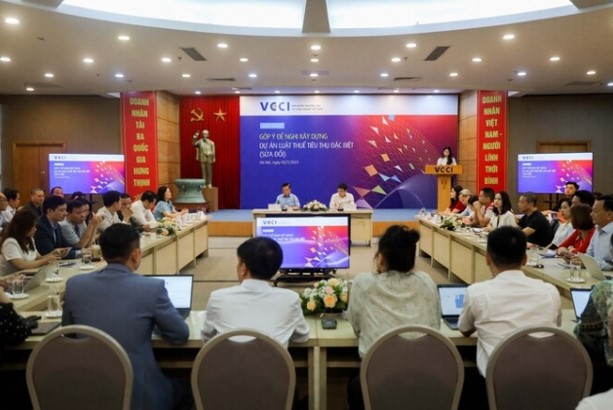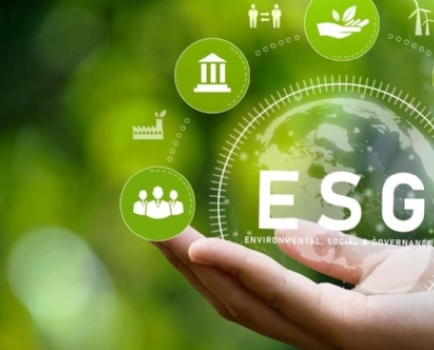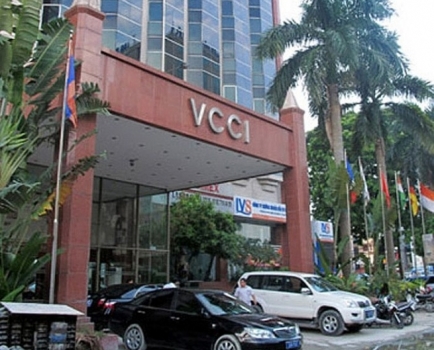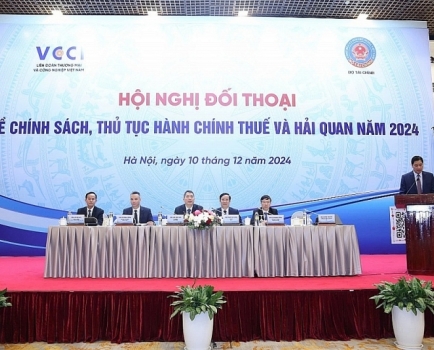Should a special consumption tax be imposed on sugary beverages?
Mon, 17 Jul 2023 14:06:00 | Print | Email Share:
At the seminar "Feedback and Proposal for the Amendment of Special Consumption Tax Law," organized by VCCI on July 5th, many opinions suggested that including soft drinks and sugary beverages under the special consumption tax might not be suitable and could impact the state budget.
In the proposal to amend the Special Consumption Tax Law, the Ministry of Finance proposed levying a special consumption tax on soft drinks and sugary beverages.
The Ministry of Finance explained that this proposal is based on the World Health Organization's statement that sugary beverages are a primary cause of overweight and obesity, and they are among the leading risk factors for non-communicable diseases such as cardiovascular diseases and diabetes, which have seen a significant surge in recent decades. The rate of overweight adults in Vietnam (over 18 years old) for both genders increased by 68% from 2002 to 2016.
According to the Ministry of Health, recent evidence shows a correlation between the consumption of sugary beverages and the economic losses, healthcare costs, and mortality caused by non-communicable diseases. Currently, 85 countries worldwide apply special consumption taxes on sugary soft drinks.

Regarding this issue, Ms. Nguyen Minh Thao, the head of the Business Environment and Competitive Capacity Research Group at the Central Institute for Economic Management (CIEM), believes that it is necessary to consider the impacts of this tax policy not only on the beverage industry but also on related supporting industries such as the sugarcane industry, retail, packaging, and logistics.
According to a report conducted by CIEM from 2018 to 2021, if this item is included in the list of commodities subject to a Special Consumption Tax (SCT) at a rate of 10% and an additional 2% Value Added Tax (VAT) is imposed on it, it would cause the beverage manufacturing sector to incur losses of about 3,791.4 billion VND (Vietnamese Dong). However, the additional tax revenue for the state budget would only amount to 2,722.3 billion VND.
Furthermore, if this tax policy is implemented, it will have a series of ripple effects on all businesses in the value chain, including packaging companies, transportation, retail, sugarcane industry, and the broader economy as a whole.

Ms. Nguyen Minh Thao, the head of the Business Environment and Competitive Capacity Research Group at the Central Institute for Economic Management (CIEM)
Ms. Thao stated that overall, the Gross Value Added (GVA) of the entire economy decreased by 0.135%, GDP decreased by 0.115%, labor income from production in the entire economy decreased by 0.155%, surplus production decreased by 0.083%, and labor force decreased by 0.092%. Additionally, the state budget revenue through consumption tax decreased by approximately 0.065% - 0.085%.
Mr. Vu Tu Thanh, Deputy Executive Director of the US-ASEAN Business Council, shared some real-life examples from certain countries after implementing special consumption taxes on sugary beverages. He pointed out that the rates of overweight and obesity did not decrease but even increased over the years.
As evidence, he mentioned Chile, where the obesity rate in men and women was 19.2% and 30.7% respectively during 2009-2010. In 2014, Chile started applying taxes to sugary beverages, but three years later, these rates increased to 30.3% in men and 38.4% in women.
Similarly, in Belgium, the obesity rate in men was 13.9%, and in women, it was 14.2% in 2014. After implementing taxes on sugary drinks in 2016, by 2019, the obesity rate increased to 17.2% in men and 15.6% in women.
Mexico also followed a similar pattern, with an obesity rate of 26.8% in men and 37.5% in women in 2012. Despite implementing taxes on sugary beverages since 2014, by 2018-2019, the obesity rate rose to 30.5% in men and 40.2% in women.
According to Mr. Thanh, as there was no impact on health, many countries abandoned this tax policy. WHO's report indicates that Denmark and Norway have officially abolished the special consumption tax on sugary beverages. The governments stated that this decision aimed to create jobs and support the local economy, Mr. Thanh added.
Source: T. Phuong (Business Finance Magazine)
By: Translator: LeAnh-Bizic
Source: https://vcci.com.vn/co-nen-ap-thue-tieu-thu-dac-biet-voi-do-uong-co-duong
---------------------------------------------
Same category News :













